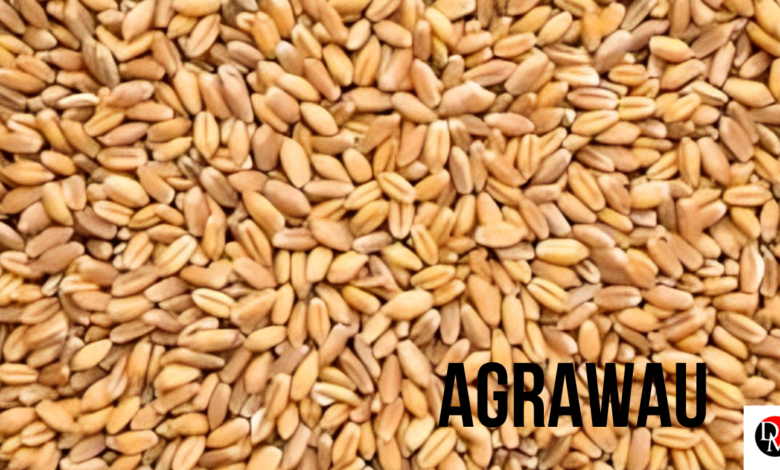Agrawau: A Journey into Tradition, Culture, and Heritage

Agrawau is more than just a geographical region or community; it’s a tapestry of rich cultural heritage, traditions, and time-honored practices that have been nurtured over centuries. This unique society, though lesser known in modern popular culture, carries an irreplaceable value, embodying a way of life deeply connected to nature, family, and history. In this article, we will dive deep into the essence of Agrawau, exploring its origins, traditions, and the challenges it faces today.
Introduction
The word Agrawau refers to a community that has preserved its distinct cultural identity and practices despite the sweeping tides of modernization. Located in a region where tradition and modernity intersect, Agrawau serves as a living archive of customs and beliefs handed down through generations.
Definition of Agrawau
Agrawau is not just a specific place, but a representation of a way of life. It encapsulates a community’s adherence to traditional values, local customs, religious practices, and cultural norms that have been shaped by its historical and geographical environment. Known for its close-knit social structure and dedication to preserving its roots, Agrawau provides a fascinating glimpse into a way of life that has stood the test of time.
Historical Significance of Agrawau
The historical significance of Agrawau lies in its ability to maintain its core values and societal structure despite external influences. Over centuries, as the world around it evolved, Agrawau remained anchored to its traditions, making it a focal point for those interested in studying how ancient practices survive in the modern world.
The Origins of Agrawau

Ancient Roots of Agrawau Culture
Agrawau has ancient roots that trace back thousands of years. The early settlers of the Agrawau region were primarily agriculturists, and their way of life was closely tied to the land. Over time, these settlers developed a unique system of living, marked by a strong sense of community, respect for nature, and a reliance on traditional knowledge.
Evolution of Agrawau through Time
As the world around Agrawau began to change, this community adapted, but only to an extent. While external trade and new technologies introduced modern amenities to the region, the people of Agrawau retained their essential customs and practices. This careful balance between adaptation and preservation has allowed Agrawau to evolve while remaining true to its origins.
The Geographic Significance
The Region Where Agrawau Thrives
Agrawau is situated in a region where the natural environment plays a crucial role in shaping the community’s lifestyle. With fertile lands ideal for agriculture and rivers that have sustained the people for generations, the geographical positioning of Agrawau has always influenced its culture and economy.
Agrawau’s Relationship with Surrounding Areas
While Agrawau maintains a sense of isolation to protect its traditions, its proximity to other regions has led to an exchange of ideas, goods, and cultural practices. This interaction with neighboring areas has enriched Agrawau, allowing it to absorb beneficial influences while still guarding its core identity.
Cultural Practices and Beliefs
Religious Practices of Agrawau
The people of Agrawau follow a set of religious beliefs that are deeply connected to their environment and agricultural lifestyle. Festivals are often tied to the harvest cycle, and rituals focus on ensuring prosperity and harmony with nature.
Spiritual Significance and Rituals
Beyond organized religion, Agrawau is home to many spiritual practices that emphasize a connection with the earth. Rituals often involve elements of the natural world, such as water, fire, and plants, symbolizing the community’s bond with their surroundings.
Traditional Clothing and Fashion
Typical Attire of Agrawau People
The clothing in Agrawau is largely influenced by the climate and agricultural way of life. Men typically wear light cotton garments suited for working in the fields, while women’s attire is colorful and intricately designed, often with handmade patterns that reflect the region’s artistic heritage.
Influence of Climate and Culture on Fashion
The warm climate of Agrawau requires breathable, light fabrics, while the cultural importance placed on modesty and tradition influences the cut and style of garments. Many of the textiles are produced locally, using techniques passed down through generations.
Cuisine of Agrawau
Staple Foods and Unique Dishes
Food in Agrawau is simple yet flavorful, focusing on ingredients readily available in the region. Rice, lentils, and locally grown vegetables are the staples, often flavored with traditional spices. Unique dishes, such as special breads and fermented foods, have a deep-rooted history and are a part of everyday meals.
Traditional Cooking Methods
Cooking in Agrawau is a communal activity, often involving clay ovens and open fires. The methods used are sustainable and practical, reflecting the community’s resourcefulness and connection to the land.
Festivals and Celebrations
Major Festivals Celebrated in Agrawau
Festivals in Agrawau are joyous occasions that bring the community together. These festivals are often tied to the seasons, such as harvest festivals that celebrate the abundance of crops, or religious festivals that mark important events in the local spiritual calendar.
Seasonal and Harvest-Related Celebrations
Seasonal changes are crucial in Agrawau, with many festivals timed to the planting or harvesting of crops. These celebrations are filled with music, dance, and feasting, highlighting the community’s gratitude for the earth’s bounty.
Music and Dance
The Role of Music in Agrawau Culture
Music is central to the cultural life of Agrawau. Traditional songs are passed down orally and often tell stories of the land, the people, and their history. Instruments like drums and flutes, made from locally sourced materials, are commonly used during festivals and gatherings.
Traditional Dance Forms
Dance in Agrawau is a form of expression and storytelling. It is performed during festivals and important life events such as weddings. The movements are often symbolic, representing the cycles of nature or historical events.
Architecture and Art
Distinctive Architectural Features of Agrawau
The buildings in Agrawau are constructed using natural materials, such as mud bricks and thatched roofs. The architecture is functional, designed to withstand the region’s climate, but it also features decorative elements that reflect the community’s artistic traditions.
Traditional Art and Craftsmanship
Agrawau is known for its handcrafted art, which includes pottery, textiles, and woodwork. These crafts are not only artistic expressions but also serve practical purposes in daily life.
Role of Family and Community
Family Structure and Responsibilities
Family plays a central role in Agrawau society. Extended families often live together or near one another, and each member has specific responsibilities, from agricultural work to household duties.
Importance of Community in Daily Life
The sense of community in Agrawau is strong, with neighbors often coming together to help one another. Whether it’s working the fields or preparing for a festival, the people of Agrawau rely on each other for support.
Agrawau in the Modern Era
Preserving Tradition in Modern Times
Despite the pressures of modernization, Agrawau has managed to retain much of its traditional way of life. While younger generations may seek opportunities outside the community, they often return to participate in cultural and religious events.
The Influence of Globalization on Agrawau
Globalization has brought both challenges and opportunities to Agrawau. While access to modern technology and education has improved, there is also a concern that these changes may erode traditional practices over time.
Economic Practices and Livelihood
Traditional Occupations
Agriculture has always been the primary occupation in Agrawau. Farming is not just a means of livelihood but also a cultural activity, deeply ingrained in the community’s identity.
Transition to Modern Employment
In recent years, some members of the Agrawau community have begun to take up modern jobs, particularly in nearby urban areas. However, many still return to their agricultural roots during important seasons.
Folklore and Oral Traditions
Famous Legends and Stories
Agrawau is rich with folklore, stories of heroes, gods, and historical events that have been passed down through generations. These stories are often told during festivals or around the family hearth, keeping the oral tradition alive.
Oral History and Its Role in Cultural Preservation
Oral traditions play a crucial role in preserving the history and culture of Agrawau. Since many of the community’s traditions are not written down, storytelling ensures that these practices are remembered and passed on.
Environmental Stewardship
Agrawau’s Relationship with Nature
The people of Agrawau have always lived in harmony with nature, practicing sustainable farming and utilizing natural resources without overexploiting them. This deep respect for the environment is reflected in their daily lives and cultural practices.
Sustainable Practices and Eco-consciousness
Agrawau is known for its eco-conscious practices. From using natural materials in construction to growing organic crops, sustainability is at the core of how the community interacts with its environment.
Challenges Facing Agrawau Today
Cultural Preservation Amidst Globalization
One of the biggest challenges facing Agrawau today is the preservation of its culture in the face of globalization. As modern values and technologies spread, the community must find ways to maintain its traditions while adapting to the changing world.
Environmental and Social Challenges
In addition to cultural challenges, Agrawau faces environmental issues such as climate change, which threatens its agricultural practices. Social changes, such as urban migration, also pose a challenge to the community’s traditional way of life.
Frequently Asked Questions (FAQs)
- What is Agrawau’s cultural significance?
- Agrawau holds deep cultural significance as a community that has preserved its traditional way of life, emphasizing the importance of family, community, and sustainability.
- How has Agrawau preserved its traditions?
- Through strong oral traditions, community festivals, and adherence to ancient practices, Agrawau continues to maintain its rich cultural heritage.
- What are the most important festivals in Agrawau?
- Harvest festivals and religious celebrations tied to the agricultural cycle are some of the most important events in Agrawau.
- How has modernity affected Agrawau’s cultural practices?
- While modernization has brought new opportunities, it has also challenged the community to balance traditional values with contemporary influences.
- What are the key economic activities in Agrawau?
- Agriculture remains the primary economic activity, though some community members have taken up modern jobs in nearby towns and cities.
- How does Agrawau contribute to environmental conservation?
- Agrawau practices sustainable agriculture and resource use, ensuring that its environmental footprint remains minimal while preserving the land for future generations.
Conclusion
Agrawau serves as a living example of how tradition, culture, and the environment can coexist harmoniously. In an age of rapid change, the people of Agrawau have managed to maintain their unique identity while also adapting to the pressures of modern life. As the world continues to evolve, Agrawau stands as a testament to the importance of preserving cultural heritage, offering valuable lessons for those seeking to balance progress with tradition.
